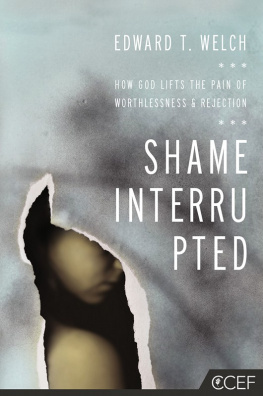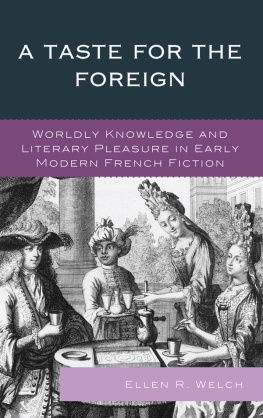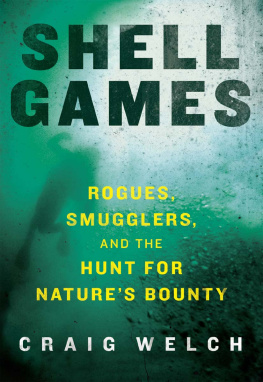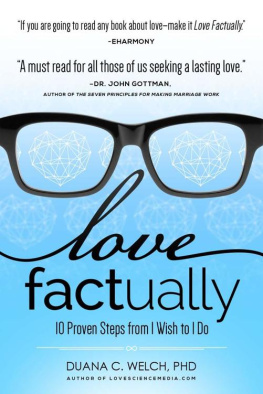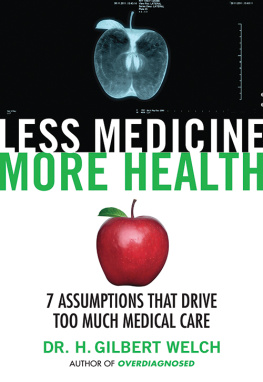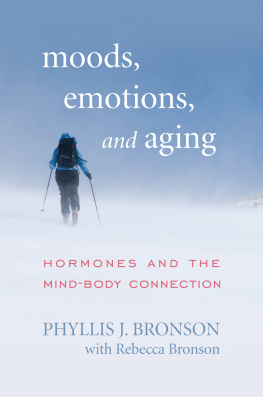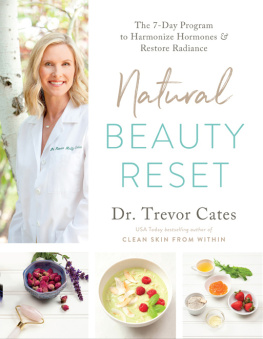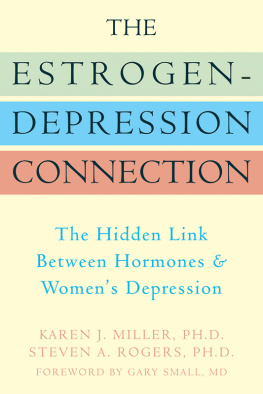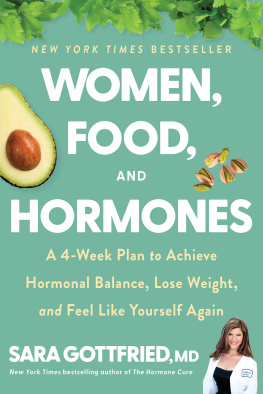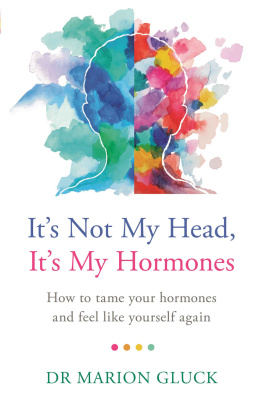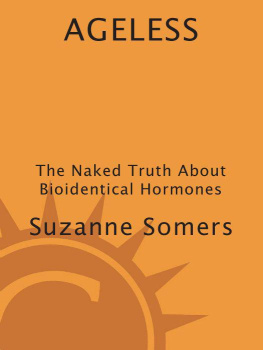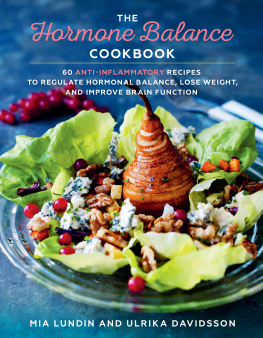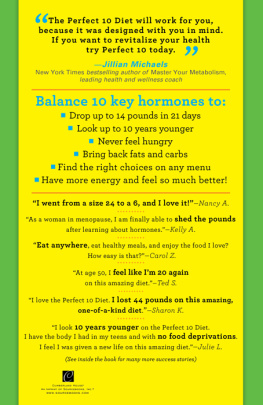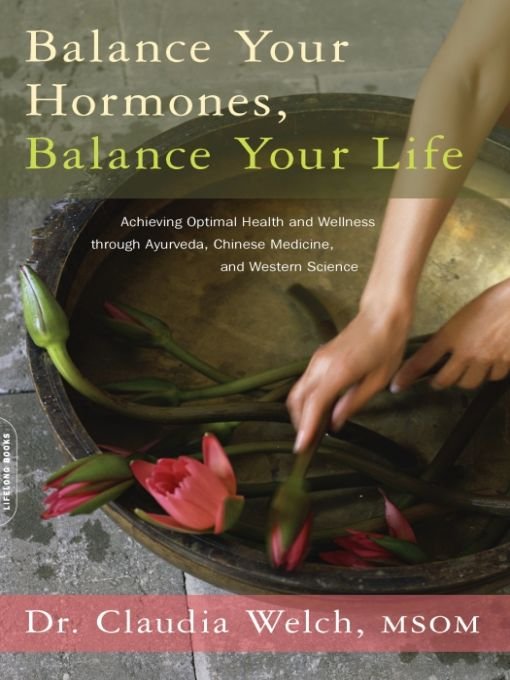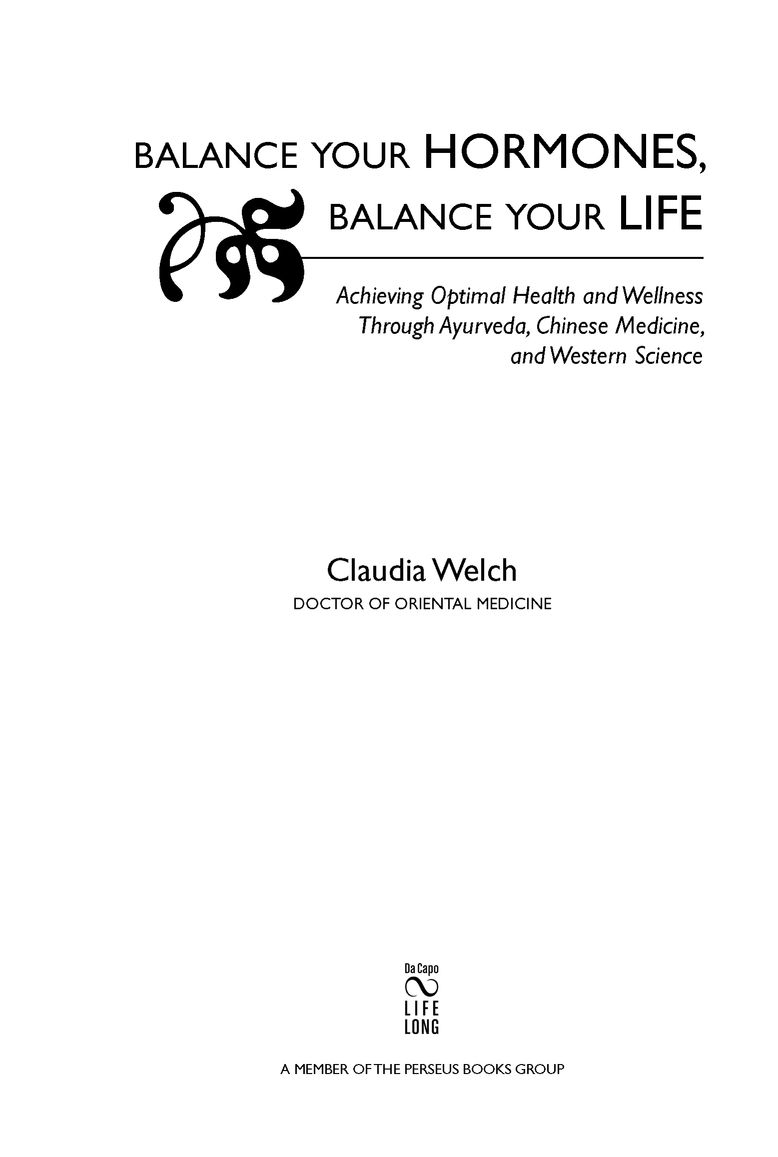Table of Contents
Praise for BALANCE YOUR HORMONES, BALANCE YOUR LIFE
Dr. Claudia Welch amalgamates Eastern medicine and Western science into a tidy and practical framework from whose clear perspective we can easily make sense of the complicated particulars of hormones and womens health.
Dr. Robert Svoboda, BAMS, author of
Ayurveda for Women: A Guide to Vitality and Health
A loving, compassionate healer and wonderful teacher, Dr. Claudia Welch has studied Ayurveda and Acupuncture extensively. She provides a new avenue and dimension of perception, integrating these two healing traditions to bring about holistic health.
Vasant Lad, BAMS, MASc, Ayurvedic Physician,
author of The Complete Book of Ayurvedic Home Remedies
For all women, perhaps especially the younger ones
Jan, Noelle, Kali, Rachel, Luna, Josie, Ariel, Sujata, Hannah, Jessa,
Meralyn, Gemma, Jane, Magdalena, Chloe, Ella, Olivia, Janiya,
Mirabai,Vernit, and Ava.
May your lives be fulfilling, balanced, and joyful.
And for dear Lucy and Lillian. May
they each rest in profound peace.
PREFACE
A COUPLE OF NOTES
For people looking for medical counsel: Although the information, ideas, and perspectives contained in this book are based on Ayurvedic, Traditional Chinese, or Western allopathic principles or studies, and even thoughin the case of Ayurvedic or Traditional Chinese Medicinesuch perspectives have been employed for thousands of years, no part of this book should be taken or construed as medical diagnosis or treatment. One significant component of Eastern medical philosophy is that each person has individual, unique needs, so no single recommendation, no matter how sound, is sound for every individual. For any medical condition or personal medical, herbal, dietary, or lifestyle advice, always consult with a qualified health-care practitioner.
Im not just saying this for legal reasons. There is always more to medicine than any one practitioner can know, not to mention more to an individuals health than an author can address without ever having even met that person. It is up to each of us to do our own search, find what works for us, and implement it. This book was born out of my own attempts to understand the sea of information available on womens health. The conclusions I draw are not facts. They are educated opinions.
For numbers and statistic buffs and critics: The data in many of the studies in this book describe the increased risk for an entire populationnot the increased risk for an individual woman. Taken as the latter, they would be scarier. Taken as the former, they are still compelling numbers.
For Western-trained physicians: In my travels in the world, I havent found any group who loves the perspective that this book presents more than you do. While Western medicine describes each individual hormone, Eastern medicine provides a context for understanding how they interact. This is heady, exciting stuff.
For everyone else: You dont have to have any background in either Western or Eastern medicine to understand the concepts in this book. Simple concepts are powerful and simply lay the framework for understanding complicated material in an easy and even enjoyable way. Bon voyage.
The Stress Epidemic
A couple years ago I spotted a bizarre headline in the New York Times. THE NEW MODERN WOMAN, AMBITIOUS AND FEEBLE, it read. The article criticized certain popular TV shows for creating heroines who were driven, neurotic, anxiety prone, and undernourished. The author of the article decried these shows, concerned that viewers would emulate the shows ambitious and feeble role models.
Although the headline was obviously a generalization about American women, it was not without merit. I am a Western woman who is also a doctor of Eastern medicine. Over the years I have seen that the medical problems of most women who come to me are rooted in a hormonal imbalance brought on by doing too much while getting too little physical and emotional nourishment, not unlike the feeble heroines. Whats more, their hormones have been out of whack for an extended period of time. Im not just talking about menopausal women. I mean women of all ages, women whose medical problems range from painful periods, mood swings, fatigue, and insomnia to infertility, uterine fibroids, hot flashes, heart disease, and osteoporosis.
Whereas Western medicine emphasizes the separate domains and functions of various kinds of hormones in the body, Eastern medicine emphasizes the context within which they exist and how they relate to each other. Combining Eastern and Western perspectives, we see two major types of hormones that affect a womans health: stress hormones and sex hormones. Having the right balance of these hormones gives us plenty of energy, deeper sleep, healthier menstrual cycles, happier dispositions, easier menopauses, healthier hearts, stronger bones, and much, much more. When we experience stress (self-induced or otherwise), our body releases extra stress hormones until the danger resolves itself, thus throwing off our hormonal balance. When our whole lives are stressful, this imbalance becomes chronic. Healing begins when we start to live the life we really want to be living. Then we have less stress and the levels of stress hormones in our bloodstream drop. When our stress hormones are not rampant, our sex hormones have a better chance to work the way they are supposed to, and we experience the well-being that comes from having balanced hormones.
How Did We Get into This Situation?
Advertising has us chasing cars and clothes, working jobs we hate so we can buy shit we dont need.
FIGHT CLUB, BASED ON THE NOVEL BY CHUCK PALAHNIUK
Many modern women mistake the feeling of being under stress for having energy, and putting ballast in the stomach for getting real sustenance. We think a woman has a lot of energy, for example, if she is a soccer mom and a full-time career woman. She starts running at dawn and doesnt rest until late evening, if she rests at all. Perhaps she grabs some fast food, a doughnut, or even healthy food, but she bolts it down to ground her so she can continue running. Shes the human equivalent of the Energizer Bunny. She is driven by the need (or ambition, as the headline writer called it) to do it all. But from the perspective of Eastern medicine, her health is becoming fragile, maybe even feeble.
The Eastern concept of energy is quite different from that of our Western Energizer Bunny. In the East, energy is called qi (also spelled chi) or prana and it is the life force. Have you ever seen someone practicing tai chi or qi gong? If so, youve seen how the practitioner expends her energyher life forceeconomically and efficiently, as an extension of her peace of mind. She nourishes her life force with whole and freshly cooked food that agrees with her, by breathing clean air, and by keeping good company. She has balance in her life. This balance, in turn, affects her life: Her equanimity is reflected in her hormonal levels. They, too, are in balance. She is happy and her health is hearty. Her life force, or qi, is strong and its flow unimpeded.
Well go deeper into the concept of qi or prana later. (You can also see Appendix B for more discussion of


